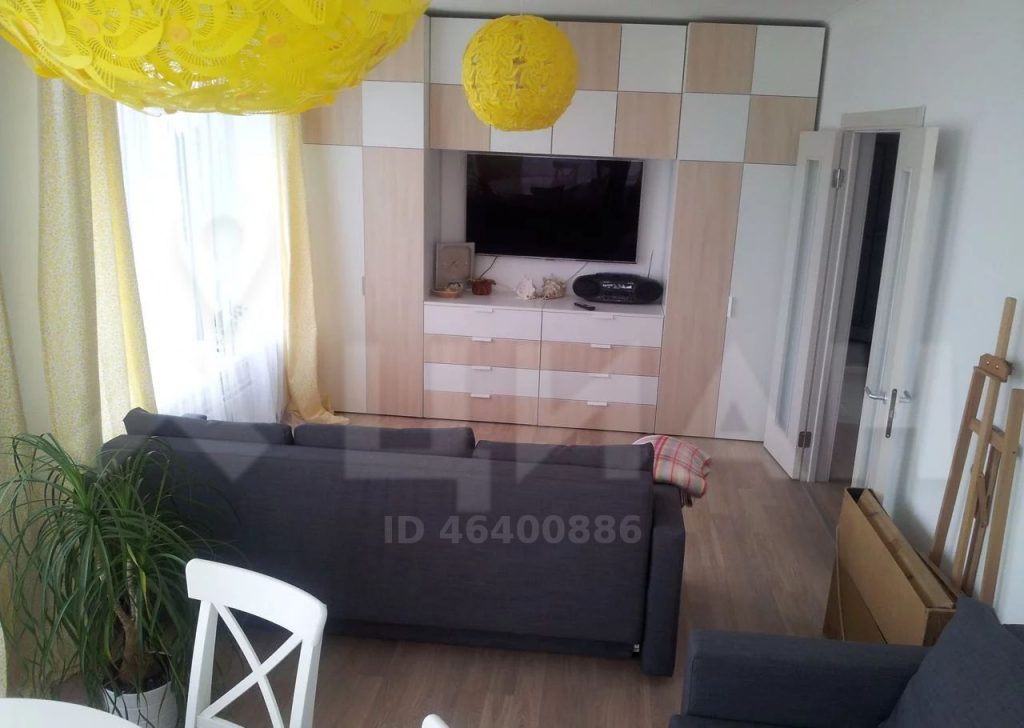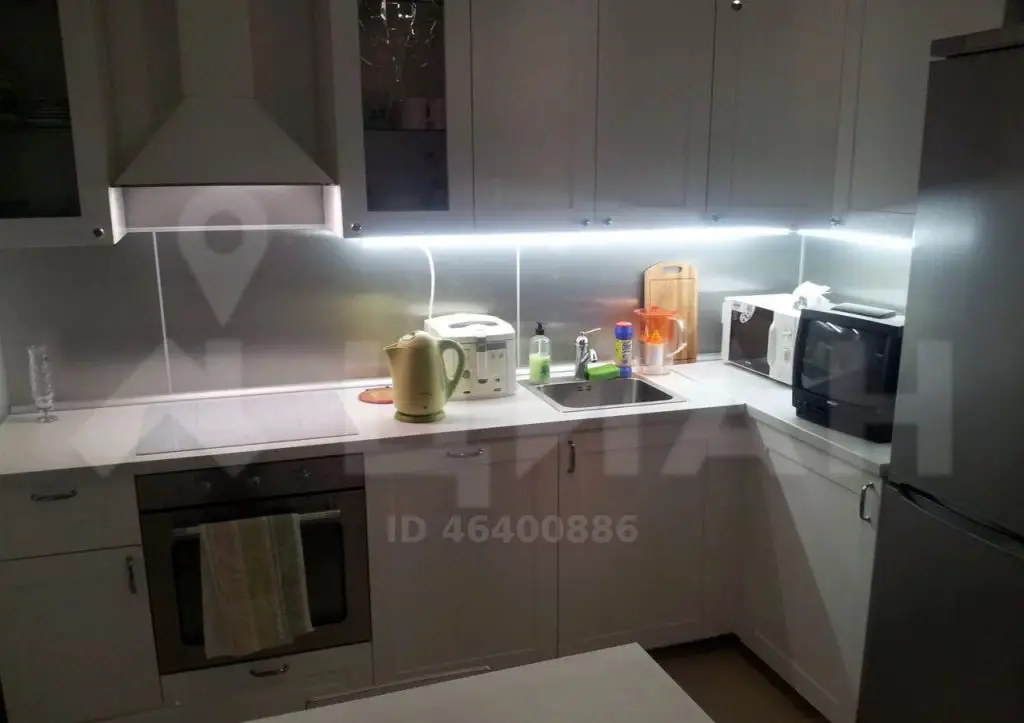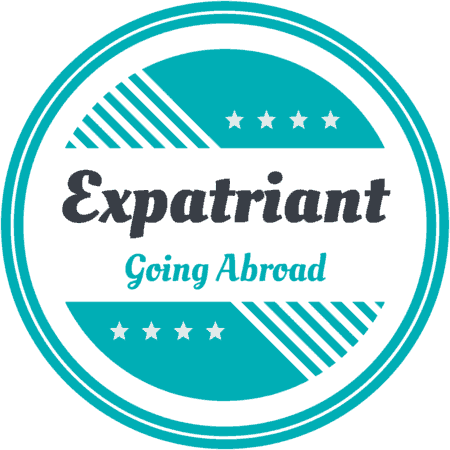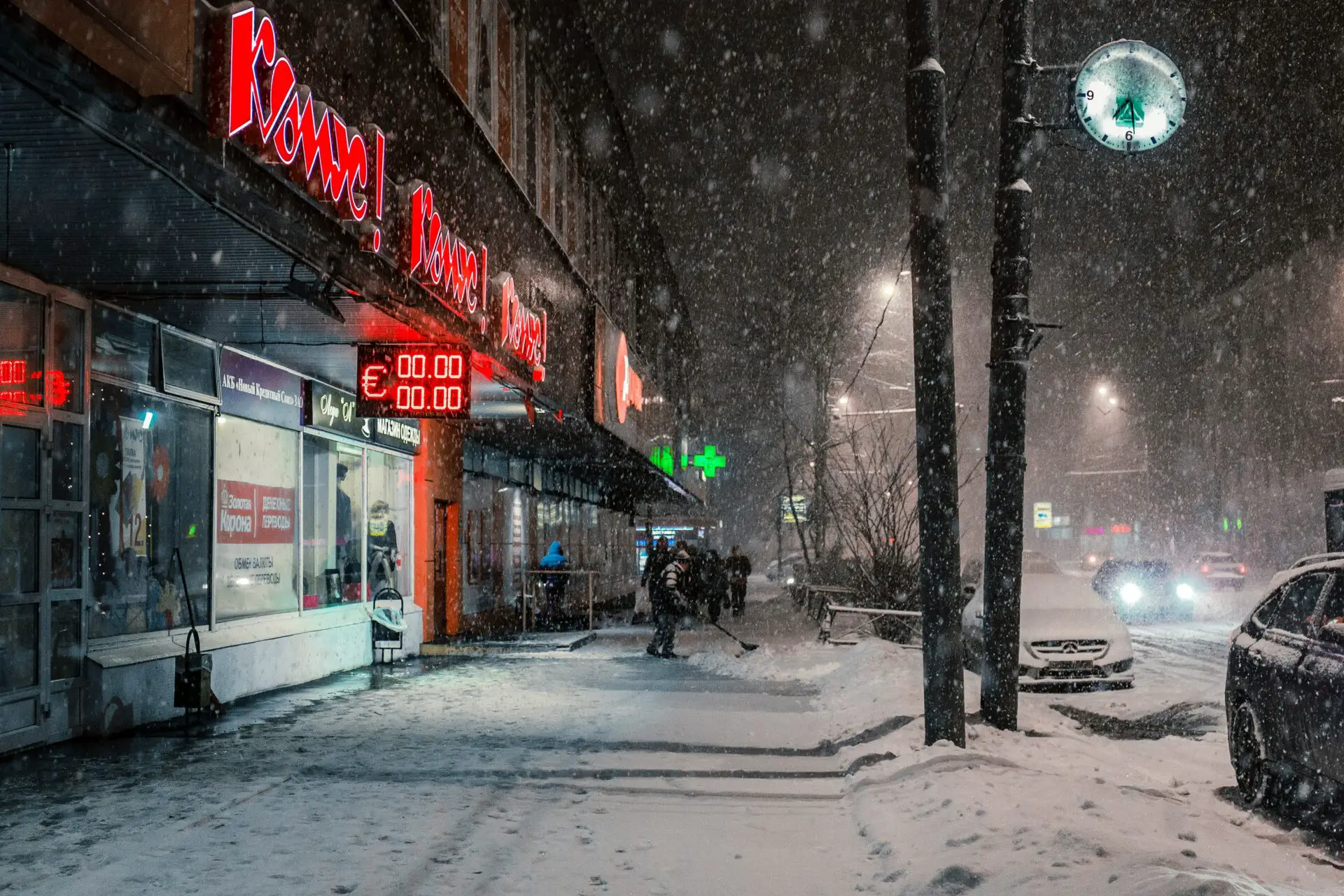The cost of living in Moscow will vary depending on your lifestyle. Keep in mind that the more you live like an expat, the higher your expenses will be. Simply, if you are looking for a low cost of living, it is definitely possible in Moscow. You just have to live like a local. The cost of imported products can be many times their domestic equivalents.
Note: All expenses noted in this post will be in Russian rubles along with the US Dollar equivalent as of January 2020.
In 2019, Moscow’s official average salary increased to 100,000 RUB ($1600). The most common job for Expats is teaching English. English teaching salaries start around 120,000 RUB ($1900) for full-time teaching. However, they can be higher depending on the school and the teacher’s qualifications.
That may not sound like much, but the cost of living in Moscow is significantly less than life in many Western cities. For example, a single trip on Moscow’s metro is 38 RUB ($0.61). Moscow’s metro system is comprised of 17 lines, and ranks as one of the best in the world. If 17 lines is overwhelming, Yandex has a map available for Apple and Android phones.
To live comfortably you can expect to spend between 75,000 and 95,000 RUB ($1200 – 1500) per month. Please understand that you won’t be living extravagantly on this budget. Though you should be able to save 20 – 40% of your salary (assuming you are an English teacher), eat out a few times a week, grab drinks with friends, etc.
Now that you have a basic understanding of the cost of living in Moscow, let’s look deeper at typical expenses in Moscow. Specifically, common living expenses such as food, housing, utilities, transportation, and consumer goods.
Food
Food in Moscow is generally of high quality and affordable. Staple products are incredibly affordable compared to any Western country. First, let’s look at the cost of common grocery products in Moscow. Most of them are significantly cheaper than in western countries.
- A loaf of white bread: 80 RUB ($1.27)
- Potatoes (1kg): 35 RUB ($0.57)
- Oranges (1kg): 90 RUB ($1.43)
- Bananas (1kg): 66 RUB ($1.05)
- Chicken breasts (1kg): 280 RUB ($4.46)
- Beef (1kg): 530 RUB ($8.43)
- 12 of eggs: 85 RUB ($1.35)
- 1.5L of water: 43 RUB ($0.68)
- 500ml domestic beer: 62 RUB ($1.00)
- 330ml imported beer: 120 RUB ($1.98)
The above prices are from the supermarkets in Moscow such as Perekrestok and Auchan. If you tend to order your groceries online (Utkonos is the best option) or shop at higher-end markets like Azbuka Vkusa you will pay higher prices. Additionally, there are also discount supermarket chains where you can find lower prices. The selection at such stores usually leaves much to be desired.
Also, keep in mind that produce is much more seasonal in Russia. The price and quality of products will vary greatly with the seasons.
If as a single person who tends to cook most meals, you can expect to pay 3,000 – 5000 RUB ($50 – 80) per week for groceries. Again, this is highly dependant on the season and your appetite for imported goods.
Cost of Restaurants
Restaurants range from self serve cafeterias such as Mu Mu Cafe to upscale restaurants. Usually, you can spend as much as you want in Moscow’s upscale restaurants.
- A full meal at a cafe (Mu – Mu) costs 200 – 500 RUB ($3 – 8).
- A McDonald’s meal costs roughly 250 RUB ($4).
- A large pizza from Domino’s costs 650 RUB ($10)
- A mid-range restaurant costs 1000+ RUB ($16+) per person
- An espresso from an average coffee shop chain such as Coffee House or Shokoladnitsa costs 90 RUB ($1.43) while a cappuccino will cost around 200 RUB ($3.19)
As for a total food budget, you can expect to pay anywhere from 15,000 – 30,000+ RUB ($240 – 500+) per month. If you eat out fairly often at average restaurants, you will be on the higher end of this spectrum.
Housing
In most cases, housing will be the largest expense contributing to your cost of living in Moscow. Apartment prices can vary significantly. Price typically depends on the location relative to the metro and the style of the interior. When searching for apartments in Moscow, you will come across the term “Evroremont”. All this means is that the apartment’s style has been updated and looks fresh. The definitive site to look for apartments in Moscow is Cian.ru. Another option is the real estate listings on Expat.ru. Below are the average prices on Cian for varying levels of apartments.
- An average two-room (US 1 bedroom) apartment in the center of Moscow near the metro ranges from 50,000 to 60,000 RUB ($800 – 950)
- A high-end two-room (US 1 bedroom) apartment in the center of Moscow near the metro ranges from 75,000 to 90,000 RUB ($1200 – 1400)
- An average three-room (US 2 bedroom) apartment in the center of Moscow near the metro ranges from 70,000 to 90,000 RUB ($1100 – 1400)
- A high-end three-room (US 2 bedroom) apartment in the center of Moscow near the metro ranges from 90,000 to 120,000 RUB ($1400 – 1900)


As with any city, the closer to the city center you are, the more you will pay. If you move between 30 – 40 minutes by metro from the center, you will find that apartments are roughly 20 – 30% cheaper than in the center.
- An average two-room (US 1 bedroom) apartment outside the center of Moscow near the metro ranges from 35,000 to 50,000 RUB ($550 – 800)
- A high-end two-room (US 1 bedroom) apartment outside the center of Moscow near the metro ranges from 60,000 to 75,000 RUB ($950 – 1200)
- An average three-room (US 2 bedroom) apartment in the center of Moscow near the metro ranges from 60,000 to 70,000 RUB ($950 – 1100)
- A high-end three-room (US 2 bedroom) apartment in the center of Moscow near the metro ranges from 75,000 to 100,000 RUB ($1200 – 1600)
If you’d like to be more frugal, sharing an apartment is a common practice in Moscow, especially among expats. The two best places to look for roommates are the real estate listings on Expat.ru or the Moscow Expats Facebook group.
Utilities and Memberships
Sometimes utilities may be included in the rent. However, if not specified, they typically range between 3,000 and 6,000 RUB ($50 – 100) for electricity, water, gas, and heat.
Keep in mind that almost all buildings do not have thermostats to control the temperature. The central heat tends to keep apartments on the warmer side, especially during the winter.
Internet and TV service (if you want it) is usually quite affordable. There are a number of providers in most parts of Moscow and service with 300 Mbs internet and 150 TV channels costs around 650 RUB ($10). If you are looking for just internet packages, you expect to pay anywhere from 350 to 800 RUB ($5 – 12) for speeds ranging from 100 to 1000Mbps and the service is very reliable. Generally, internet service in Moscow is even better than most ISPs in the United States.
Mobile phone plans range between 500 and 800 RUB ($8 – 12) depending on the amount of data and minutes you need. The two largest providers are MTS and Tele2. If you’d like to see all of the plans they offer, you may check out MTS and Tele2.
A standard fitness membership goes for between 3000 and 10,000 RUB ($45 – 160) per month. This depends largely on the quality of the fitness club. Expect to pay around 5000 RUB ($80) per month for an average fitness club.
Transportation
Transportation is another major monthly expense and a major reason why the cost of living in Moscow is as affordable as it is. It offers incredible value. As mentioned above, one 90-minute trip with unlimited transfers on the metro or bus is 38 RUB ($0.61).
You may also purchase daily, weekly, monthly, or yearly unlimited travel passes.
As of 2020, you can use the Troika card on any public transportation in Moscow, including the suburban commuter trains. A yearly pass for the metro and Moscow city busses costs 19,500 RUB ($310). For the complete information regarding the Troika card, check out Moscow Transport’s site.

If you need to take a taxi in Moscow, Uber has merged with Yandex Taxi. However, Yandex Taxi has very favorable rates. For example, a trip from Sheremetyevo International Airport to the city center costs around 800 RUB ($13). The other popular taxi application is Gett Taxi. The rates are about the same.
Typically it is best to avoid the local taxis and use one of the apps. This isn’t for safety, taxi drivers on the street will not give you a good price. Especially if you do not speak Russian. Though, if you must use one be sure to agree on the price before getting into the car.
Cost of Domestic and International Travel
Domestic train trips are by far the most affordable way to travel between cities, but depending on your destination they can take a long time. Trips to St Petersburg from Moscow on the Sapsan high-speed train start at around 3000 RUB ($50).
If you’re up for an adventure on the Trans-Siberian Railway, you can get a ticket from Moscow to Vladivostok for between 10,000 and 63,000 RUB ($160 – 1000). Pricing depends on your desired level of comfort (3rd class versus 1st class options).
Domestic flights in the western half of the country between most cities cost less than 6500 RUB ($100). If you are looking to fly clear across Russia, a flight to just about the farthest city from Moscow, Vladivostok, goes for 25,000 RUB ($400)
International flights are also quite affordable from Moscow. A flight to India or the US costs around 25,000 RUB ($400) or between most major European cities for 15,000 RUB ($250).
In total, if we assume you return home once per year (25,000 RUB), and have a yearly metro pass (25,000 RUB) as well as take a taxi twice per week (30,000 RUB per year) you can expect an average budget of about 6000 RUB ($95) per month on transportation.
Cost of Consumer Goods
Consumer goods in Moscow can range significantly for the same item depending on where it is purchased. Russia has a high value-added tax of 20%. This means that any consumer goods sold through official channels like big box stores and shopping malls will be considerably higher than US prices.
That being said, all is not lost. If you are able to navigate the site in Russian, Yandex.Market is a collection of thousands of internet stores. You can find consumer goods here for considerably lower prices than in stores. Most of the time it is even possible to find electronics at US prices.
This is due to a number of factors that may affect your purchase. Usually, the goods are purchased abroad, therefore, any manufacturer’s warranty will be invalid. The store selling the goods usually have their own warranty. Though it will be a major hassle should something go wrong. The other reason is that many of these stores do not officially declare their taxes. Therefore, the business is essentially illegal.
You run a risk buying from these types of stores, but the risk could be worth the savings, it’s up to you.
Conclusion
I hope this gives you a good idea as to the cost of living in Moscow. Your budget will likely range from 76,000 to 200,000+ RUB ($1200 – 3000) per month depending on your personal preferences. If you are a family, your costs will increase significantly. To live comfortably as a family, you will want to have a salary of at least 200,000 RUB ($3000) a month. If it makes you feel any better, most Russians are living on significantly less, the official statistics are always inflated.
Ready to take your career abroad? Browse open positions in Russia today! Don’t worry, if you don’t know where to start. Our career consultants are available to help you create a plan to get you where you want to be.

